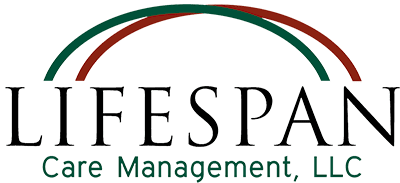LifeSpan Care Management Blog
What Does Social Security Hold in Store for Today’s Aging Adult?
For many older adults in the United States, Social Security is more than just a monthly check — it represents stability, independence, and a foundation for retirement planning. As life expectancy increases and the aging population grows, many families are asking an...
What is the best solution for elderly and disabled care?
The best solution for elderly and disabled care is one that provides: Safety Independence Medical oversight Emotional support Long-term planning Coordination across services For most families, the best outcomes come from combining care management, in-home support, and...
Prescriptions and Appointments: How to Manage Them Effectively
Managing prescriptions and medical appointments can become overwhelming, especially for older adults, individuals with chronic illnesses, or those living with disabilities. Between multiple doctors, medication schedules, insurance requirements, and follow-up visits,...
What Are the Limitations of Case Management in Mental Health?
Case management plays a vital role in supporting individuals living with mental health conditions. It helps connect clients to resources, coordinate care, reduce barriers to treatment, and improve overall stability. For many people, mental health case managers provide...
Navigating The Healthcare System at 80
Understanding the Healthcare System for 80 Year Olds Reaching your 80s is an incredible milestone, one that comes with wisdom, resilience, and a lifetime of experiences. Yet for many older adults, navigating today’s healthcare system becomes increasingly complex....
Chronic Care Management For People in NJ
Understanding Chronic Care Management: What It Means for Seniors & Families in New Jersey When a loved one is living with a long-term health condition—such as diabetes, heart disease, COPD, or chronic kidney disease—their care needs go well beyond the occasional...
Getting Help For A Parent Who Has Physical or Cognitive Limits
Few moments in life are more delicate than realizing your parents are starting to need help. The people who once guided and protected you may now be facing physical, cognitive, or emotional changes that affect their independence. You want to support them, but the idea...
What are service management tools in healthcare?
What Are Service Management Tools in Healthcare? Highlighting Patient Advocacy for the Elderly As healthcare systems evolve to serve aging populations and individuals with chronic conditions, service management tools have become essential in coordinating care,...
Tele-Health Check-Up in Seniors – Why They Do Not Work
Telephonic Strategies to Manage Care Do Not Work. Here’s Why As healthcare systems grow increasingly digital, many organizations have turned to telephonic care management to check in with patients over the phone, track progress, review medications, and discuss care...
Hospice Care and Palliative Care: Complete Overview
What Is the Difference Between Hospice Care and Palliative Care? When an elderly loved one or someone living with a chronic illness reaches a stage where comfort and quality of life become the main priorities, families often encounter two terms—hospice care and...
Why Do You Implement Chronic Care Management?
Managing a chronic health condition — like diabetes, heart disease, or arthritis — is a complex, ongoing process. It’s not something that can be addressed in a single appointment or a short course of treatment. Because these conditions require continual oversight and...
How to Talk to Your Aging Parents About Their Limitations
As our parents age, we may start to notice a gradual decline in their ability to do things on their own — whether it’s managing their health care, keeping up their home, or staying socially connected. Initiating conversations about these limitations and figuring out a...












